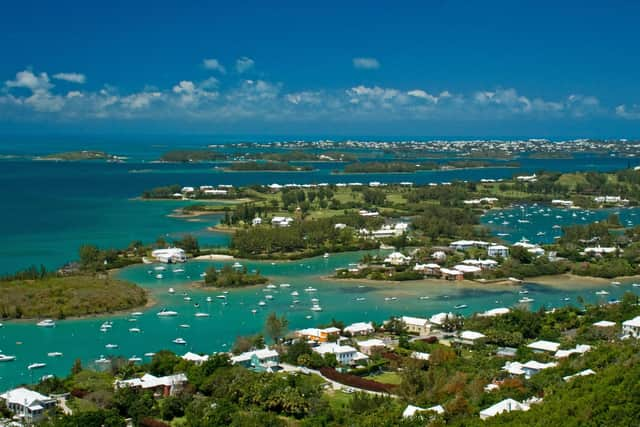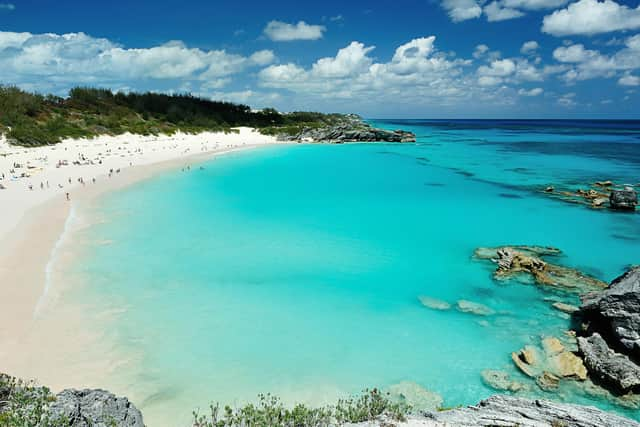Should Scotland follow Bermuda's lead to help save the planet and benefit human health?
Scotland may not have Bermuda’s great weather but it has more in common with the UK overseas territory than first meets the eye.
Both places are surrounded by sea, the North Atlantic, and are home to diverse wildlife and spectacular landscapes.
Advertisement
Hide AdAdvertisement
Hide AdThey also share a goal to move away from fossil fuels, slash greenhouse gas emissions and protect biodiversity.
In an exclusive interview for Scotland on Sunday, Bermuda premier David Burt discusses common problems facing the two nations and what each can learn from the other.
“Bermuda has been a centre of innovation and sustainability for years,” he said.
“We take the environment very seriously.
“We share with Scotland a wish to innovate in renewables, in our case using the sun and tides, to become carbon-neutral over time, and radically to reduce our carbon footprint over the next decade.”


Bermuda is one of the most affluent places on earth, a thriving financial hub with a booming tourism industry.
So it might come as a surprise that each household is allowed only one car, with a restriction on size – a rule that has been in place since cars were first permitted there in 1946 – and there’s a maximum speed limit of around 22mph.
Meanwhile, visitors cannot drive at all – except for tiny electric hire vehicles or low-powered mopeds – encouraged instead to use buses or taxis.


Transport is one of the biggest contributors to climate change, with petrol and diesel vehicles also creating toxic air pollution.
Advertisement
Hide AdAdvertisement
Hide AdSo could Scotland take a leaf out of Bermuda's book by restricting car ownership and vehicle hires?
Dr Richard Dixon, an environmental campaigner and consultant who has worked on air pollution and traffic emissions issues for many years, thinks it could be a viable option.
“This is an interesting idea we should seriously consider,” he said.


“Most second cars spend much of their time rusting away in the street and costing money, or adding to congestion when they are occasionally on the move.
“Add to that the energy and climate emissions bound up in making cars in the first place and the space they take up on our street, and it makes sense to phase them out.
“Restricting urban households to a maximum of one car would reduce pollution and congestion, and make our towns and cities more pleasant places to be.”
And Bermuda can also take some tips from Scotland, according to its leaders.
Deputy premier and environment minister Walter Roban said: “The North Atlantic is a strategic maritime trust which we and Scotland share, from our shared interests in renewable energy, fishing and biodiversity.
Advertisement
Hide AdAdvertisement
Hide Ad

“We can learn from Scotland’s research in wind and tide and our shared wish to maintain sustainable long-term blue water fisheries.”
“Scotland and Bermuda share a fine tradition,” Mr Burt added.
“And like in Scotland, we are committed to making sure the move to low-carbon society is a just transition.”
A fifth of Bermuda’s seas are protected.
It has pledged to slash emissions by 85 per cent by 2030, and is working towards the UK net zero by 2050 target.
Moves are under way to turn public transport fully electric by 2030.
Comments
Want to join the conversation? Please or to comment on this article.
